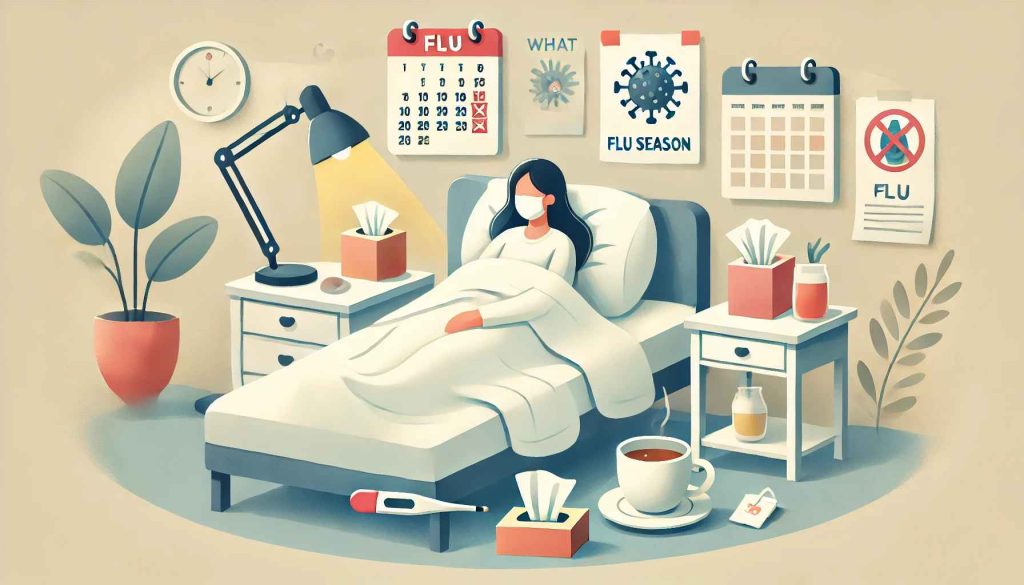
Feeling a bit off lately? You might be wondering if it’s just a cold or something more. Flu season is here, and it’s crucial to know what you’re dealing with. In this blog post, we’ll dive into the symptoms of the flu and share expert tips from top health professionals on how to manage and prevent it. Whether you’re feeling a tickle in your throat or a full-blown fever, we’ve got you covered. Let’s jump right in!

Understanding the Flu
The flu, or influenza, is a contagious respiratory illness caused by influenza viruses. It can lead to mild to severe illness, and in some cases, it can even be fatal. Understanding the symptoms can help you take action early and seek appropriate care.
Common Symptoms of the Flu
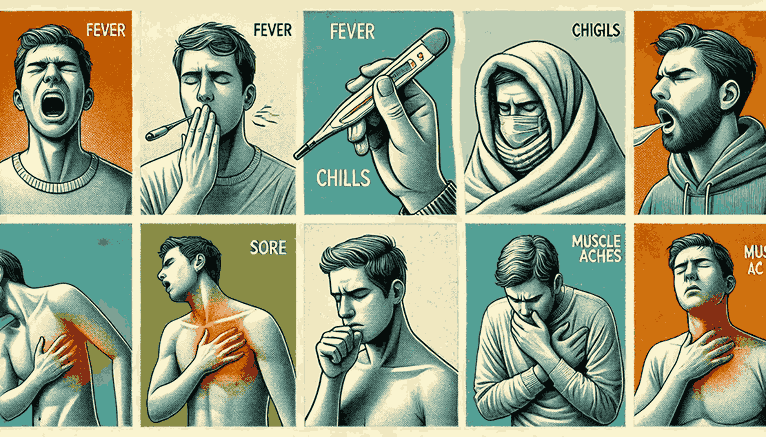
The flu can hit you like a ton of bricks. One moment you’re fine, and the next, you’re knocked out. Here are the most common symptoms:
- Fever: One of the hallmark symptoms of the flu. Fevers typically range from 100°F to 104°F and can last for several days.
- Chills and Sweats: These often accompany a fever, making you feel cold even when your body temperature is high.
- Cough: Usually dry and persistent, a cough can last for weeks after other symptoms have resolved.
- Sore Throat: A scratchy or painful throat is common.
- Runny or Stuffy Nose: Nasal congestion can be bothersome.
- Muscle or Body Aches: These can be severe and affect the entire body.
- Headaches: A common symptom that can range from mild to severe.
- Fatigue: Feeling extremely tired is typical, and it can linger even after other symptoms have subsided.
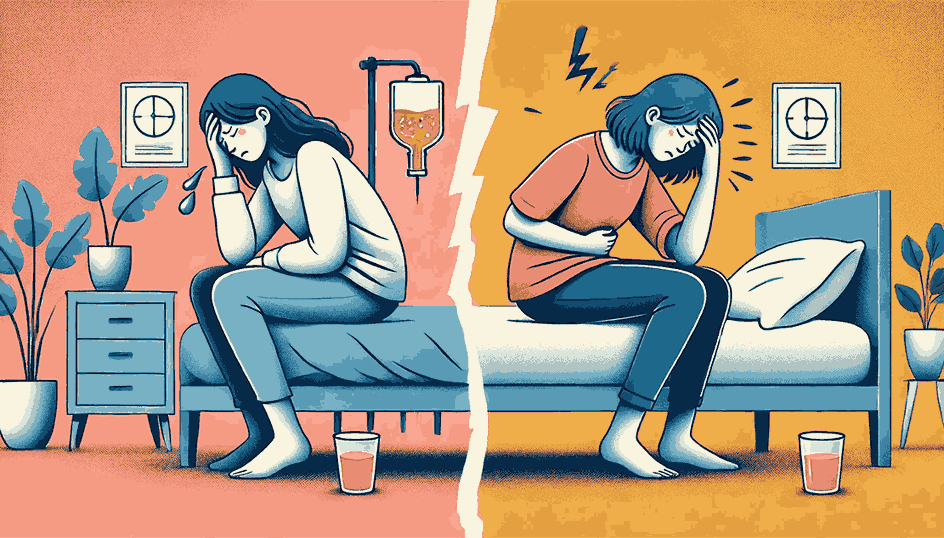
Less Common Symptoms
While the above are the most common, the flu can sometimes cause less typical symptoms:
- Gastrointestinal Issues: Nausea, vomiting, and diarrhea, particularly in children.
- Dizziness: Feeling lightheaded or faint.
How the Flu Spreads
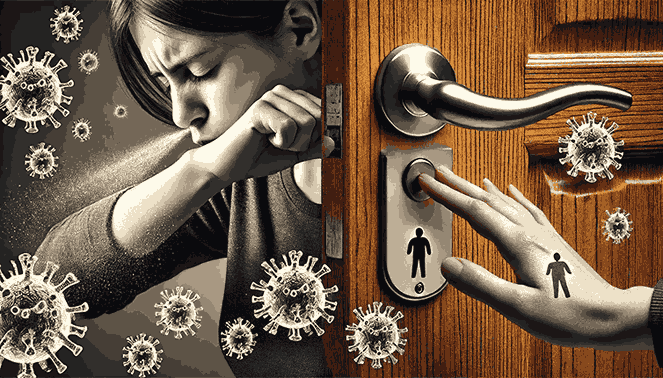
Understanding how the flu spreads can help you protect yourself and others. The flu primarily spreads through droplets when an infected person coughs, sneezes, or talks. These droplets can land in the mouths or noses of nearby people or be inhaled into the lungs. It can also spread by touching a surface contaminated with the virus and then touching your face.
Prevention Tips from Health Professionals
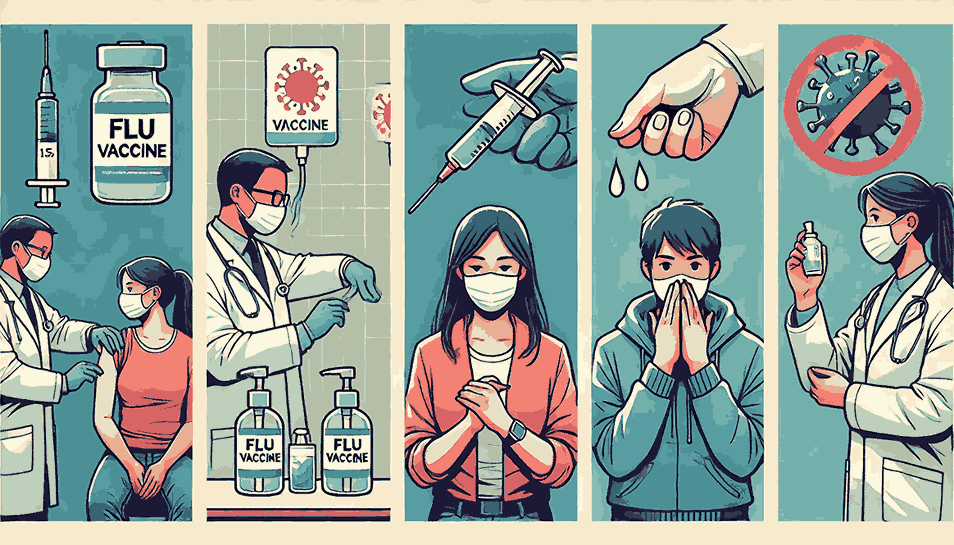
Preventing the flu is easier than you might think. Here are some top tips from health professionals:
- Get Vaccinated: The flu vaccine is the most effective way to prevent the flu. It’s recommended for everyone six months and older.
- Practice Good Hygiene: Wash your hands frequently with soap and water. If soap and water aren’t available, use an alcohol-based hand sanitizer.
- Avoid Close Contact: Stay away from people who are sick. If you’re sick, limit contact with others to prevent spreading the virus.
- Cover Your Coughs and Sneezes: Use a tissue or your elbow to cover your mouth and nose.
- Stay Home if Sick: Rest and recover at home to avoid spreading the flu to others.
Managing Flu Symptoms

If you catch the flu, managing symptoms can help you feel better faster. Here’s what health professionals recommend:
- Rest: Give your body the time it needs to heal.
- Stay Hydrated: Drink plenty of fluids like water, herbal teas, and broths.
- Over-the-Counter Medications: Pain relievers and fever reducers like ibuprofen or acetaminophen can help manage symptoms.
- Stay Home: Avoid going to work or school to prevent spreading the virus.
When to See a Doctor

While most people recover from the flu on their own, certain symptoms require medical attention. Contact a healthcare professional if you experience:
- Difficulty breathing or shortness of breath.
- Chest pain or pressure.
- Severe or persistent vomiting.
- Confusion or sudden dizziness.
- Symptoms that improve but then return with fever and worse cough.
Flu Complications
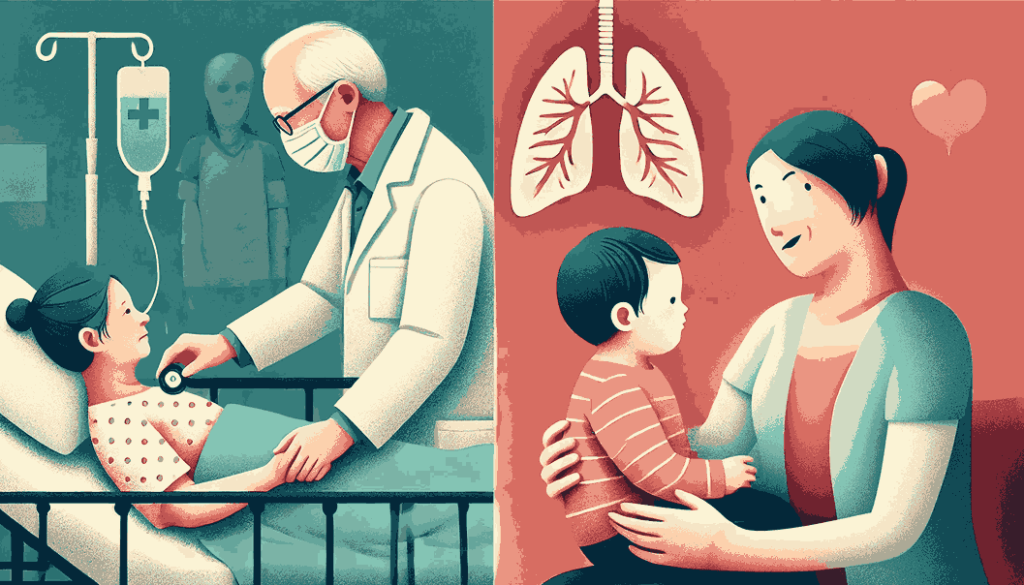
The flu can lead to complications, especially in high-risk groups such as young children, elderly individuals, pregnant women, and those with chronic health conditions. Complications can include:
- Pneumonia: A serious lung infection.
- Bronchitis: Inflammation of the bronchial tubes.
- Sinus and Ear Infections: Can occur as a result of the flu.
- Worsening of Chronic Conditions: Such as asthma or heart disease.
Differences Between the Flu and the Common Cold
It’s easy to confuse the flu with the common cold since they share many symptoms. However, flu symptoms are usually more severe and come on more suddenly. Colds generally cause a runny or stuffy nose, while the flu more commonly involves fever, body aches, and fatigue.
Tips for a Healthy Immune System
A strong immune system can help you fight off the flu. Here are some tips to keep your immune system in top shape:

- Eat a Balanced Diet: Include plenty of fruits, vegetables, lean proteins, and whole grains.
- Exercise Regularly: Aim for at least 30 minutes of moderate exercise most days of the week.
- Get Enough Sleep: Adults should aim for 7-9 hours per night.
- Manage Stress: High stress levels can weaken your immune system. Practice relaxation techniques like meditation or yoga.
- Stay Hydrated: Drink plenty of water throughout the day.
FAQs
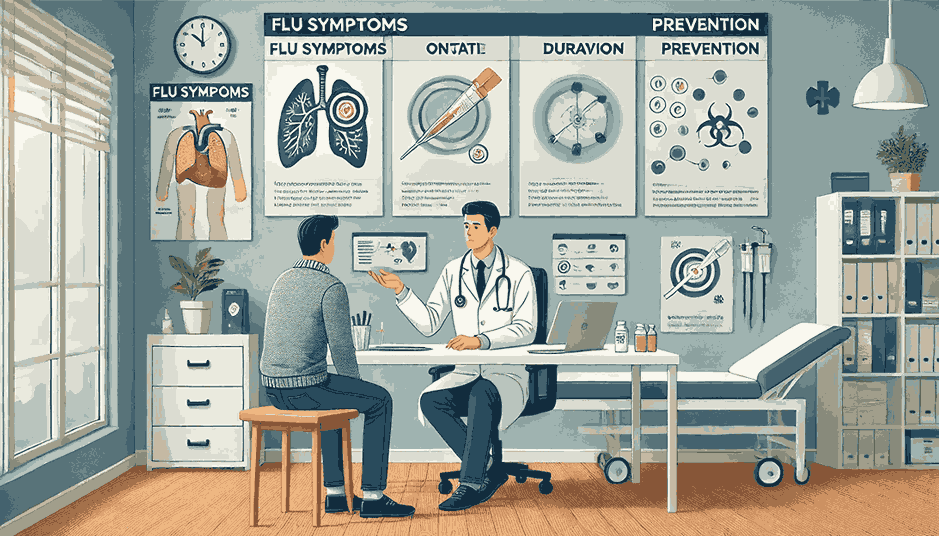
What are the first signs of the flu?
The first signs of the flu typically include a sudden onset of fever, chills, muscle aches, and fatigue. You might also experience a sore throat, cough, and runny or stuffy nose.
How long does the flu last?
The flu usually lasts about one to two weeks. Symptoms like fever and body aches typically improve after a few days, but a cough and fatigue can linger.
Can you get the flu from the flu vaccine?
No, you cannot get the flu from the flu vaccine. The flu vaccine contains either inactivated virus or a single protein from the virus, which cannot cause illness.
Is it possible to have the flu without a fever?
Yes, it is possible to have the flu without a fever, though it is less common. Other symptoms like body aches, fatigue, and a cough can still occur.
How can I prevent the flu naturally?
Natural prevention methods include maintaining good hygiene, getting enough rest, staying hydrated, eating a balanced diet, and managing stress. However, the flu vaccine remains the most effective way to prevent the flu.
Conclusion

Understanding the symptoms of the flu and knowing how to manage them can make a world of difference. From recognizing the first signs to taking preventive measures and seeking medical help when necessary, you’re now equipped with expert advice from top health professionals. Stay healthy, and don’t let the flu catch you off guard this season!



Thank you so much.